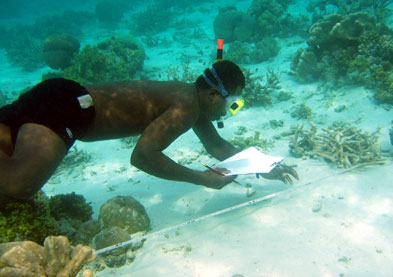Related News

Marine Conservation in the Asia-Pacific region will be strengthened by three grants recently awarded to the Institute of Applied Science (IAS) at the University of the South Pacific. The grants will total US$1.5 million over the next four years and relate to the pioneering work IAS is doing in assisting communities to sustainable manage and monitor their marine resources. The work is being undertaken in Fiji, Vanuatu, Solomon Islands, Papua New Guinea, Philippines, Indonesia, Palau and the Federated States of Micronesia.
IAS and its partners are leading the way in making marine conservation happen at the local/community level where resource management decisions are being made every day. Many sites are reporting large increases in marine resources due to their management actions, such as declaring “tabu” areas. The grants have been awarded by the Packard and MacArthur Foundations of the United States. “USP is playing a leading role in the region in developing new approaches to community-based conservation. Their work is of the highest standard,’’ said Mr David Hulse of the MacArthur Foundation.
One grant supports training of local scientists in taxonomy and conservation, and site-based resource management planning in communities. Another grant supports research to discover how best to do this work and then passing on these lessons learned regionally and internationally. The third covers coordination and regional training.
IAS Director Professor Bill Aalbersberg, was thankful for the continued support of the two foundations. “These grants allow us to train the regional conservation leaders of the future; some have already received international awards. It also allows us to learn how best to do this kind of work in different cultural systems in Asia and the Pacific,’’ said Professor Aalbersberg. “I have to acknowledge the hard work of our staff, partner NGO’s and government agencies and the committed community members in making this work a success,’’ he added.
“Training and capacity building are key components of the work. This week, for example, IAS is running a training course for Assistant Roko Tuis on integrated coastal management. A month-long regional course for community conservation workers is also taking place. Next week there will be training courses for community leaders on communication strategies and fish catch per unit effort. These workshops keep us busy but, besides building capacity, also build partnerships’’ Professor Aalbersberg added.